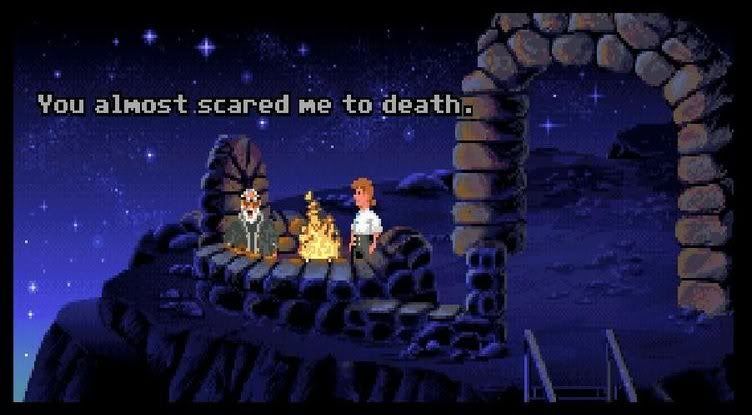Over the weekend what some say is a very important event in geek fandom took place: a Japanese man married a video game character. The man, going by the online handle "Sal9000" married the character Nene Anegasaki from the video game Love Plus. Many watching the video of the event commented it represented the "end of Japan", and while I think it is a sad expression of one human beings need for companionship, I wouldn't say it's the "end of Japan" and there are certainly other factors to take into consideration when examining the broken down psychology of relationships in Japan.
First of all, it's not the "end of Japan". Obsessive otaku have existed for at least the past 35 years, and have found slightly disturbing outlets in everything from naked, mid-coitus anime character statues, to full length body-pillows with popular, scantily clad anime characters illustrated on them. In addition, what both Boingboing blogger Lisa Katayama's video erroneously states and the related Kotaku article fail to mention (even though it is plainly stated in a previous Kotaku article) is that although this was a Japanese man, the ceremony took place in Guam at a church that agreed to hold the ceremony. No goverment agency was involved in recognizing this "marriage" as a legal union in any way, particularly not the Japanese government. This is far from a permanent shift in Japanese society. Lisa Katayama goes so far as to suggest that rather than a "real marriage" the Japanese man just wanted to express "he's hooked on this game and that he's really into the character who lives inside of it". On that point I differ, and while I don't believe this is the "end of Japan" I do think it's one more symptom of a confused, stressed-out society.
The decline in relationships and dating in Japan is a serious issue. The Japanese population is expected to decrease by 30 million over the next 40 years, and 50% of that population will be 65 years old or older. Japanese citizens are having fewer children, and part of the issue is that they are forming relationships more and more rarely. In my opinion, it stems from a culture that emphasizes incredibly exhausting work schedules, the clash of traditional and modern views of relationships, and the culture that surrounds Japan's unique brand of escapist entertainment.
Ever since Japan's rapid industrialization in the late 1800s Japan has had an incredibly strong work ethic. At that time the government drove the country to "catch up" to the West in an effort to avoid colonization. This effort was effective, and transformed Japan into a colonial power itself at the beginning of the 20th century. In the aftermath of WWII, this same spirit created the "salaryman" culture that saw Japan rise from a post-war country with a ruined infrastructure to a premiere economic power in the 1980s. The salaryman was expected to work 15 hour shifts, move wherever his company needed him most, and by and large sacrifice his family time and leisure for the good of the company and by extension the country. DThe fiuring that time Japanese men may have been willing to accept this grueling lifestyle as they had either seen first-hand or were not far removed from the destruction and poverty of war, and they were buoyed by Japan's fantastic rise to eminence on the world stage. Once the economic bubble burst in the early 90s however, a generation raised in wealth entered the workforce at a time when the country was facing an economic recession some say has never ended. These young men were expected to work the same endlessly tiring schedules as their fathers; expected to step into harsh and thankless roles after leaving a relatively easy childhood. This pressure may have drove them to seek escape from the reality of Japanese business culture.
Due to Japan's rapid industrialization many tradition aspects of Japanese society have clashed with their foriegn-influenced modern counterparts. Traditional Japanese society practiced arranged marriage. The Western feeling of passionate "true love" was one that was acknowledged but acknowledged as problematic and not a feeling to be indulged. Instead the traditional Japanese ideal of love was very innocent. Like the "first love" during adolescence, this ideal emphasizes shy, tentative expressions of affection as opposed to the passionate outpourings of Western "love" (and by extension was something expected to be shed when the demands of "adulthood" arose). This has remained the ideal for Japanese men, while buoyed by their growing economic power Japanese women have embraced the imported concept of the empowered woman. This is a positive development as traditionally women have had very submissive roles in Japanese society. The conflict lies in that Japanese women have come to expect confident men who have their lives organized, while the driving economic pressure and obsession with innocent, stress-free relationships has left more and more Japanese men checking out of relationships.
Just as Japan was known worldwide for its economic prowess in the 1980s, Japanese pop culture began a rise to international renown in the mid 1990s. Driving this rise inside Japan were a growing fanbase of "otaku", men in their twenties and beyond with a childlike obsession with video games and anime. Series aimed towards young girls, featuring young female protagonists and innocent "first love" stories, were particularly popular with this demographic. As the animation/video game industry saw this they began to produce products that catered to these desires for innocent, stress-free relationships. One of which is the very videogame, Love Plus, which features Sal9000's "bride". In a society where men are under a large amount of stress to work tirelessly and the major form of escapist entertainment offers them their ideal romantic relationship, many choose to tune out the changing realities of modern relationships in Japan.
A Japanese man marrying a video game character is by no means the "end of Japan" or even a symptom of the sole cause in the Japanese population decline. There are still men and women who manage to have realistic relationships in Japan, but may decline to start a family because of the pressures of their jobs. However, this event is a symptom of a society in crisis. A society that on its current path is looking at the prospect of extinction.








